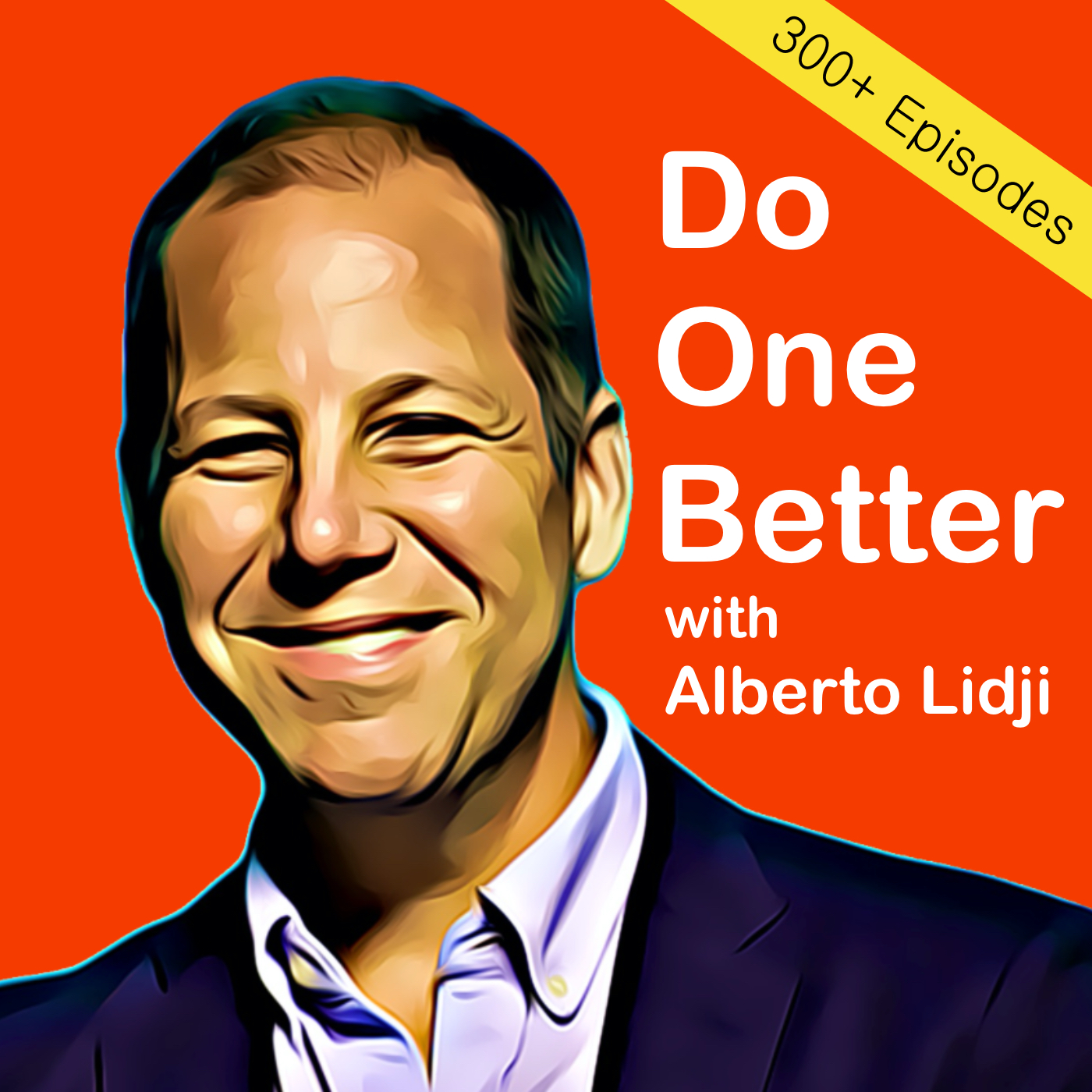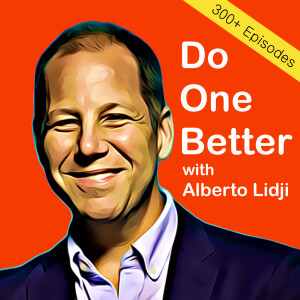

Listen to 300+ interviews on philanthropy, sustainability and social entrepreneurship. Guests include Paul Polman, David Lynch, Siya Kolisi, Cherie Blair, Chiwetel Ejiofor, Bob Moritz, David Miliband and Julia Gillard. Hosted by Alberto Lidji, Visiting Professor at Strathclyde Business School and ex-Global CEO of the Novak Djokovic Foundation. Visit Lidji.org for more information.
Episodes

Monday Jun 17, 2019
Monday Jun 17, 2019
Chairman of the Varkey Foundation, Vikas Pota, joins Alberto Lidji to discuss the Global Teacher Prize, Ed-Tech and universal access to quality education.
Vikas is passionate about quality education, advocacy, education technology (Ed-Tech) and political engagement. The Varkey Foundation is the driving force behind the Global Teacher Prize, which awards $1 million every year to an outstanding teacher. They have made five annual awards thus far.
Moreover, the Varkey Foundation also convenes key stakeholders via their high-profile Global Education & Skills Forum in Dubai, where last year around 50 education ministers from around the world were in attendance.
The $1 million award was presented by the well-known actor, Hugh Jackman, and is aimed at inspiring and increasing the status of teachers in every country.
Advocacy is key and Vikas feels the philanthropy sector does a terrible job at communicating. As a sector he feels there’s a need to step up and ask how do we capture people’s imagination – “communication is critical to everything that we do”.
The Varkey Foundation is a global foundation, which has been around for approximately 10 years. They’ve gone from being a CSR arm of GEMS Education, to being a corporate foundation and, now, to being a family foundation.
Internationally, they engage with policymakers and key stakeholders on the ground. In Argentina, for instance, they have implemented a leadership and innovation program where nearly 6,000 school principals and directors have taken the course themselves – this is in partnership with five provinces in Argentina and Vikas notes it has been hugely successful.
When asked whether ‘workforce’ was one of the key problems, Vikas replied that in the UK for example there is a recruitment and retention crisis. Teachers don’t want to stay in the job. UN Sustainable Development Goal Number 4 focuses on the provision of a quality education for all – Vikas notes it requires the recruitment of an additional 69 million new teachers to deliver SDG4 globally.
While at Davos a few years back, Vikas had a discussion on whether teachers would be replaced by robots. Encouragingly, he notes the conclusion was that teachers’ jobs would not be replaced by robots – and that’s why it’s important to invest in capacity building for the teaching profession. However, Vikas recognises the tremendous potential of deploying education technology to improve outcomes.
In addition to being the Chairman of the Varkey Foundation, Vikas is also the CEO of Tmrw Digital, a for-profit vehicle aimed at education technology.
On the Ed-Tech front, he recognises that the challenges are significant. He believes we don’t really understand the true potential that technology has in transforming lives in classrooms.
While meeting Ed-Tech entrepreneurial start-ups and innovators every day to learn about productivity, personalisation etc, what he notes is: “the thing I found most interesting is how woeful the state of affairs is when it comes to ed-tech entrepreneurs, who actually treat ed-tech or the education sector just like they would treat the financial services sector, which is as a market place.” His message to them is for them always to speak in terms of learning outcomes.
He asks Ed-Tech entrepreneurs to show him the actual impact their solutions would have. When he poses this question, three quarters if not more of entrepreneurs just drop away and that is why he has been “sorely disappointed with the state of start-ups” in this space.
One of the key areas he feels requires our attention is political leadership: one of the challenges is in the way that schools and education systems procure products. Often the high cost of acquisition of a student is so high because one has to go from school to school individually, and that becomes challenging as a business model for Ed-Tech. He feels procurement shouldn’t be thought of simply as how many whiteboards are being purchased but, rather, those making the procurement decisions should think about how to procure the best numeracy apps, how best to bring in personalisation into the classroom. This more enlightened type of conversation is happening in Brazil, it is also happening in the UK but, unfortunately, it is not happening in much of the world.
On the topic of philanthropy, he views philanthropy “as courage capital”, to invest in areas where the public sector in particular will just not be able to. And by doing so he feels that philanthropy can strengthen the public sector – research, programming, knowledge-sharing etc.
He sees convening as being exactly the use of courage capital. Convening is very expensive and because it costs so much not many people do it, and they don’t do it well enough. That’s why the Varkey Foundation is keen to bring people together and getting them to talk about education. At the last Global Education & Skills Forum, they had nearly 50 education ministers from around the world, 100 philanthropic leaders from around the world, teachers, academics – bringing a multiple range of perspectives. This leads to conversations that drive the field forward. Importantly, they invite and host those representing the whole spectrum of views, from teachers’ unions to for-profit private education providers, and everything in between.
On the question whether private, for-profit education providers have a role to play: Vikas notes that over the years he has witnessed many ideological fault lines in education and, indeed, scepticism regarding the role of private, for-profit actors is one of them – one of many.
The answer lies on whether classroom outcomes are improved, whether kids end up doing better. If you keep this in mind then whether it’s private, public, not-for-profit, it really doesn’t matter, in his view. He observes that the conversation has matured over recent years and people do appreciate the private sector has a role to play.
On the topic of political engagement, Vikas provides interesting insight, noting that there are only a few countries in the world where the education minister they have actually wants to be the education minister; as opposed to using that position as a staging post for something bigger or actually exiting a government. He sees it usually as a job on the way up or the way down.
Because of this, they explored (and are exploring) the idea of having a Best Education Minister Prize. There is a need to show people what good education leadership looks like. He prompts any interested listeners to get in touch if this is something they’d like to explore.
Vikas’ key takeaway for those in the education policy, foundation and Ed-Tech space: in education, nothing starts or ends without teachers. So, make sure you actually consult teachers and involve them in the design. These are the sort of conversations that he has found to be the most fruitful and eye-opening.
-- Full episode notes are available at Lidji.org including useful links and guest bios. Please subscribe to this podcast if you find it useful and informative - Thank you!
No comments yet. Be the first to say something!